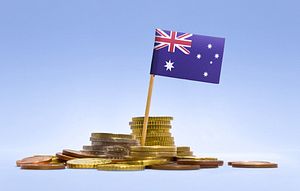Budgets can be austere things, as Australia’s was – or tried to be — in 2014. They can also be optimistic, about delivering surpluses or in this government’s case “jobs and growth.” Australian Prime Minister Malcolm Turnbull and his Treasurer Scott Morrison have delivered an optimistic budget. Or at least they delivered it optimistically, with Turnbull waxing lyrically if slightly flatly on the great promise of “innovation” to the future of Australia and to jobs and growth.
Given the mishandling of the 2014 budget and Turnbull’s commitment to be a better salesman than Tony Abbott – no more sloganeering – selling hope makes sense. But is the budget actually hopeful? It is, in many ways. However, Professor Ross Garnaut of Melbourne University and the Australian National University, an economist with more than thirty years of well-regarded work, wrote that the government was essentially selling rainbows, overestimating the price of iron ore and that “ the good outcomes are there by assumption, and not forecast through analysis.”
While Australia’s continuous growth for more than two decades may be close to the longest run any developed nation has enjoyed, sustained it into the future requires more than naked hope – it also needs strong policy. The economist said as much in the introduction to his 2013 book Dog Days: Australia After the Boom, where he reflected on a 2005 speech (when the mining boom was in full swing) that during boom times even average policy looks “celestial.” Sadly the converse is true too. In bad times even good policy will struggle.
The other parallel between this analysis and his book, written just as the Coalition had taken office, was that vested or business interests should not be part of sound government policy. Here he writes:
“An example in this budget is the reduction in company tax at the request of the Business Council of Australia without serious analysis of its effects on future deficits… The most careful economic analysis, by Janine Dixon of the Centre for Policy Studies for the Melbourne Economic Forum, has shown that while a company tax cut will increase output in Australia, it will significantly reduce budget revenue and also the average income of Australians.”
That does not quite line up neatly with jobs and growth, but the government’s focus on jobs has taken some odd and already derided turns, such as the new Work for the Dole internship scheme, which offers young people internships where they work up 25 hours a week and get an additional A$200 ($146.55) per fortnight (or $4 per hour jobs, as angry unions have labeled them). Companies get a bonus of A$1,000.
“We don’t think that’s going to do anything but provide yet another layer of unpaid labor which is actually going to be subsidized by the taxpayer,” a spokesman for The Australian Manufacturing Workers Union told the ABC.
However, it is not an entirely free run for the wealthy at the expense of social services and Treasurer Scott Morrison has noted that growth times are modest. The deficit has blown out by A$3.4 billion since last year’s mid-year financial update, though the government predicts that the A$37.1 billion deficit will be down to A$6 billion by 2020-2021. While the middle tax bracket has been increased from A$80,000 to A$87,000 not all middle class and wealthy are winners. Wealthy retirees (part of the Liberal Party’s traditional base) are to have their tax-free superannuation thresholds capped at $1.6 million.
The ABC’s Anna Henderson wrote, “the budget appears to be largely a nip-and-tuck exercise as the Government seeks to avoid upsetting the larger voter base with less than nine weeks until polling day.’”
An election has been announced for July 2. Whether the public is optimistic about jobs and growth will be better known then.

































